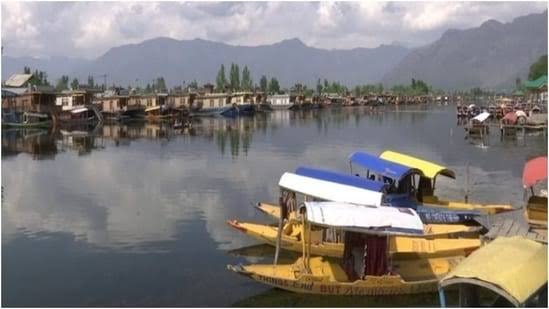August 5th marks two years anniversary of the historic decision, since the abrogation of article 370 in Jammu and Kashmir in 2019, which left a deep impact on the region. The state of J&K was bifurcated into two Union territories of Jammu & Kashmir and Ladakh.
On 5 August 2019, Articles 370 and 35(A) were abrogated that have given the erstwhile state its special status and the mandate to define its domicile rules.
However, the political parties of Jammu and Kashmir are continuously struggling for restoration of statehood. Meanwhile many things have changed in the state since then:
Formation of Gupkar alliance (Kashmiri Mahagathbandan)
On August 5, hundreds of political leaders and workers, along with three former chief ministers Mehbooba Mufti, Omar Abdullah and his father Farooq Abdullah were detained. While the Abdullahs were freed in March last year, Mufti was released in the second week of October 2020. Since then, all the political leaders have come together, including four other parties in Kashmir, in order to forge an informal alliance that aims to work for the restoration of the region’s special status.
People from outside can purchase property in J&K:
In October 2020, the Central government paved the way for people from outside to buy land in the union territory. Following nullification of the special status, the centre issued a notification dropping the “permanent resident of the state” from Section 17 of the Jammu and Kashmir Development Act, which deals with disposal of the land in the UT. The amendment, however did not allow transfer of agricultural land to non-agriculturists except in few cases.
No separate flag for Jammu and Kashmir:
The special status allowed J&K to have its own flag. After the abrogation of Article 370, the civil secretariat in Srinagar hoisted the Indian Tricolour, while the state’s own flag was missing. The rectangular flag with a red background and three white vertical stripes alongside a white plough in the middle with handle facing the stripes – fluttered next to the Indian national flag on the secretariat for over six decades.
Domicile equality status for J&K women
Before August 2019, women of Jammu and Kashmir had no right to buy property in the erstwhile state if they married a non-local man. Their husbands were not treated as J&K residents and were also not allowed to inherit or buy property. But now, with a notification from Centre for Jammu and Kashmir in July this year, the spouses of women get domicile status even if they are non-local. They can now buy property and also apply for government jobs.
No passport for stone pelters:
The Criminal Investigative Department of J&K Police has issued an order on 31 July 2021, denying of security clearance required for passport and other government services to all those involved in stone-pelting or insurgent activities. The order has directed all units to look specifically into the person’s involvement in stone-pelting cases, and other crime, during verification related to passport service and other government schemes.



